One of the most common questions we receive is “What is a good time to buy a home?” While the answer is “Anytime OTHER THAN the spring time”, the reality remains that home buyers come out into the real estate market during the months of March – June. So if you’re thinking of buying a home in 2023 or beyond, here are a few things you should be doing right now – to prepare.
Here is a timetable for first time home buyers in Canada. In the U.S., check your rules regarding any possible savings plan for home buyers.
- Save for your down-payment via an RRSP (1-2 yrs. before)
- Get your credit report (6 months – 1 yr. before)
- Make a final deposit into your RRSP (3-5 months before)
- Choose a Real Estate Agent (1-2 months before)
- Get pre-approved by ONE Lender (just before house-hunting)
- Buy a home
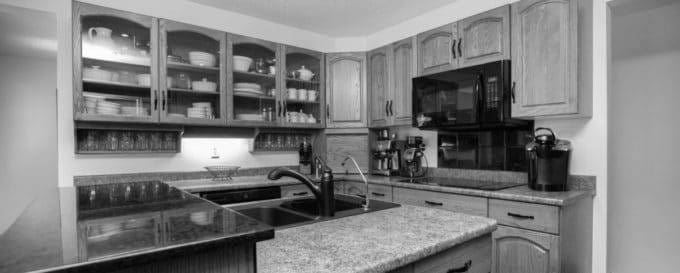
1-2 years before buying a home
Buying a home means you will need a minimum of 5% downpayment, plus about 3% for closing costs. The average house price in Winnipeg is around $300,000, so that would mean home buyers require $24,000 in cash at a minimum.
Assuming you are working full-time, and/or have the ability to contribute to a Registered Retirement Savings Plan, I highly recommend that you start placing your savings into such a plan. First time home buyers will be able to retrieve that money later, without penalties.
If you’re planning to buy a home in the spring of next year, you can contribute your maximum RRSP amount anytime now, right until the end of February 2023. (Note: the money must be in your RRSP account for at least 90 days before you can withdraw it for a home purchase).
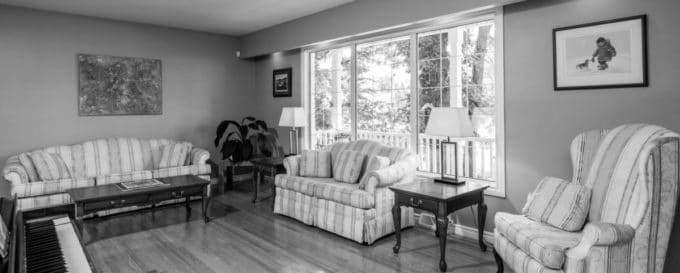
Get a Credit Check for Home Buyers
About 6 months to a year before buying a house or condo, get your credit checked. Mortgage lenders reserve the best credit rates for home buyers with the best credit ratings.
Why get it checked this far ahead of trying to buy a home? Because if there are any credit blemishes on your record, you will want to have enough time to repair it. Credit blemishes could include:
- Liens or loans
- Over extended credit cards
- Unpaid utility bills
- Unpaid parking tickets (yes!)
Even if you run out and fix these items right away, it usually takes a couple of months to reflect the improvements on your credit check. So fix them now, before you apply for a mortgage.
Not just any credit check will do, however. Mike Schroeder of Mortgage Architects tells us that a Home Loan Credit Check is what’s needed. For that, contact your mortgage lender directly, or reach out to Mike at Mortgage Architects.
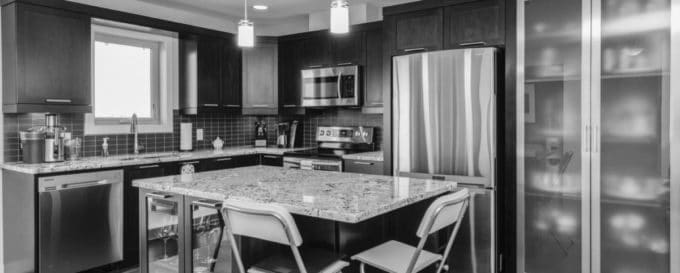
Make one last deposit into an RRSP (Canada)
If you still have room in your contribution limits, go ahead an make another deposit at least 90 days before you go home shopping. You’ll be able to take that money out and use it as a down payment, and STILL receive the tax refund as well. This is actually a neat little trick for anyone looking to buy their first home. Check this out:
You have $10,000 saved for a down payment. On Jan. 2nd, you deposit this into your RRSP (assuming you still have the contribution room for the previous year).
You file your income tax return, claiming a $10,000 RRSP contribution, which will get you a refund. The size of the refund depends on your tax bracket. For this exercise, let’s assume that bracket is 30%.
On April 15th, you pull out the $10,000 to be used as a down payment on your first home. This is done WITHOUT penalty or loss of any kind. (Some lenders may charge an admin. fee, so check with them on this)
End of April, our federal govt sends you a tax refund which is now $3,000 larger than normal (30% of $10,000). This additional money is like a gift from the government. You can use it as part of your down payment or closing costs. For more info and to check this out, contact my friend and expert Thomas Johnson of Cascade Financial in Winnipeg.
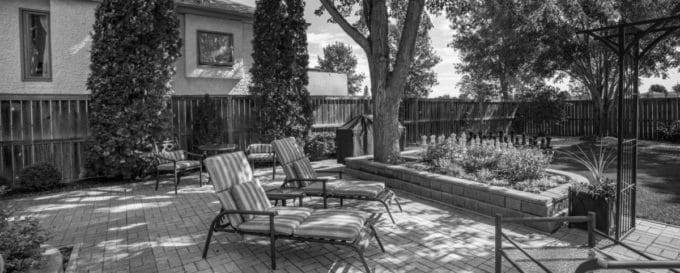
Chose your Home Buyer Agent
In the ‘old days’, the advice used to be: Get pre-approved by a lender first. No longer, and here is why.
Home buyers would check interest rates with various lenders, but remember what I said earlier: The best rates are reserved for the buyers with the best credit ratings.
How do the lenders find your credit ratings? By requesting a credit check. But here is the rub: The more credit checks you get done, the WORSE your credit will look. The credit checkers see that you’re shopping around, and they get nervous that you might be about to go into huge debt, so they start flagging your credit. So home buyers are well advised NOT to do this.
Instead, pick your real estate agent first. A qualified buyer representative, such as an A.B.R. (Accredited Buyer Representative) will have the required experience and connections to help guide you to the best mortgage lender.
When it comes to home financing, not all lenders are created equal. Banks, Credit Unions and Mortgage Brokers, they each have certain advantages. Yes, they each have drawbacks as well. A good real estate professional will have connections to each type of lender, and based on your individual situation, will be able to guide you to the right option.
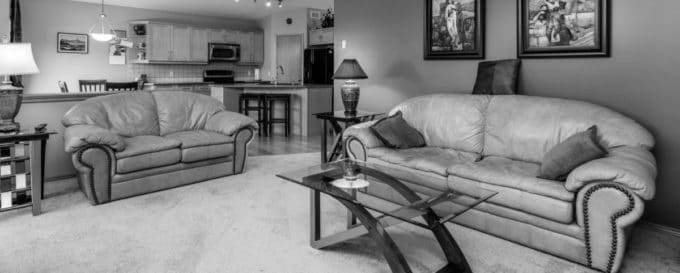
Get Pre-Approved by one lender
Your REALTOR® has recommended a lender, and NOW is the time to get pre-approved. Pre-approval brings with it a number of benefits:
- Knowing how much the home buyer can afford
- Streamline the mortgage application process
- Give the home seller a sense of confidence in your offer
- HOLD YOUR INTEREST RATE FOR 90-120 DAYS
This last benefit is worth expounding upon. (Be sure to check with your lender on the following information, as not all lenders follow this rule)
Let’s say its April 1st and you received your pre-approval with a rate of 6.2% for 5 yrs. You go out and look for a home, and find one on May 25th. Your offer is accepted (yeeeaaa) and you now apply for your mortgage.
To your disappointment you learn that interest rates have gone up to 6.9% (on a $300,000 mortgage over 5 yrs, this will cost you approx. $10,500 MORE in interest) But this is where pre-approval kicks in. Your 6.2% rate had been guaranteed since April 1st and is still valid.
But what happens if rates go down?
So let’s say that by May 20th, the mortgage rates have actually dropped to 5.9%. Too bad, right? Nope! You get the LOWER rate and win again. So pre-approval is a Win-Win situation. Get it done!
If you’re thinking of buying a home in the next 6 months – 1 year, contact me and we’ll talk to see how you can best prepare for this huge step.
Last Step – Finding and buying a house (or condo)
You’ve been pre-approved, have your REALTOR® all picked out. Now comes the fun part….looking at other peoples houses…lol. Enjoy, pick a nice one and get ready to compete!
Most Common First Time Home Buyer Regrets
Common F.A.Q.’s from Home Buyers
How can I use my RRSP‘s when buying my first home?
Currently in Canada, you are allowed to take out money from your Registered Retirement Savings Plan without penalty. There are a couple of provisions, however: The money must have been inside the RRSP for at least 90 days, and you have to repay the money, in equal payments, over the next 15 yrs if you want to avoid any tax penalties.
What are Closing Costs and how much money will I need for that?
Closing costs are not only for first time home buyers. Anytime you buy a house or condo, you will need money for Land Titles Transfer Tax, Legal Fees, Property Taxes, Mortgage Fees, Registration Fees etc…. To be on the safe side, set aside 3% of the purchase price.
Should first time home buyers get a home inspection?
If at all possible, YES. Not just first time buyers, but anyone buying a home should consider a good, in-depth examination of the home. I say, ‘If at all possible’, because in super hot sellers markets, the buyer may not be able to demand this condition, as the seller has options to accept other, cleaner offers.
What kind of expenses should a new homeowner prepare for?
After moving in, and having paid the closing costs, homeowners will face: utility bills (heat, electricity, water, cable and internet) as well as save money in a contingency fund for home repairs (furnace, hot water tank, roof or plumbing leaks, etc). While uncommon in Canada, Home Owners Association Fees are common in the U.S. If you bought a condo, there are monthly condo fees to pay for as well, plus a property tax bill comes every year.
 About the Publisher
About the Publisher
Bo Kauffmann is a residential real estate agent with over 18 yrs experience in helping buyers and sellers achieve their goals. Inducted into the REMAX Hall of Fame in 2010 and receiving the REMAX Lifetime Achievement Award in 2019, Bo has sold over 500 houses and condos in the Greater Winnipeg market. He is an accredited buyer representative (A.B.R.) and a Luxury Home Marketing Specialist.
Bo provides exceptional service to First-Time Home-Buyers, Seniors looking to downsize and Home Sellers of all ages.
He can be reached easily By E-Mail or call/text him Call/Text Here
Never miss an episode of our real estate podcast. Install our FREE Podcast App available on iOS and Android. For your Apple Devices, click here to install our iOS App. For your Android Devices, click here to install our Android App. Check my videos on Youtube



Tom Johnson
Great article Bo! I’ve done the Homebuyer RRSP program myself and definitely recommend it to many clients. The tax savings really help Canadians get into the housing market faster and easier than saving up cash or inside a TFSA.